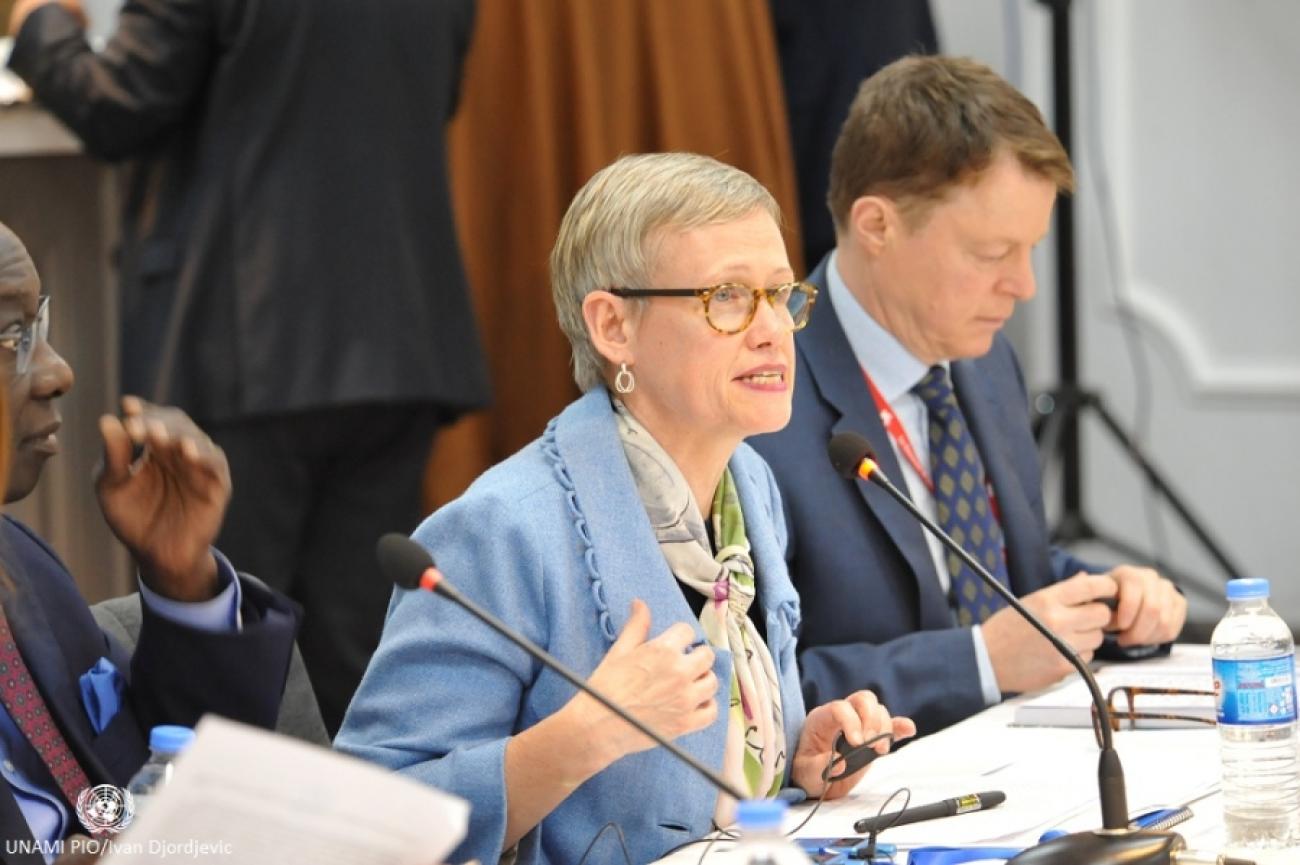UNAMI Hate Speech Event with UN Under-Secretary-General Adama Dieng

All agreed that there is a shared responsibility to prevent and prosecute hate speech, including in private homes, classrooms, newsrooms and social media
The global increase in hate speech as a vehicle to express and transfer xenophobia, racism and intolerance is deeply troubling.
(The UN defines hate speech as “any kind of communication in speech, writing or behaviour which attacks or uses pejorative or discriminatory language with reference to a person or a group on the basis of their religion, ethnicity, nationality, race, colour, descent, gender or other identity factor.”) The UN aims to support its member states to address the root causes and drivers of hate speech and effectively respond to the impact of hate speech on society. Tackling hate speech helps promote peaceful, inclusive societies; helps combat violence against women and minorities and other serious violations of human rights; and plays a key role in countering atrocity crimes and even terrorism.
On 3 March, the UNAMI Human Rights Office brought together, in the presence of UN Under-Secretary-General Adama Dieng, UN Special Adviser on the Prevention of Genocide and the UN global focal point on hate speech, representatives from Iraqi human rights organisations, media monitoring bodies and legal associations, and representatives of diverse communities, to take stock of the dangers that hate speech represents to Iraqi society. Participants discussed cultural factors, legacies of the past including recent armed conflict and acts of terrorism, patterns of discrimination, and current legislation. They offered ideas on how hate speech might be addressed and countered. The role of the Communications and Media Commission and courts in developing regulatory and judicial responses, respectively, was highlighted. All agreed that there is a shared responsibility to prevent and prosecute hate speech, including in private homes, classrooms, newsrooms and social media, places of worship and other public venues.
USG Dieng concluded the discussion with a reminder that “eternal vigilance” was the price to be paid for freedom, and everyone must remain vigilant in opposing hate speech. He launched an appeal for all Iraqis to band together against hatred, discrimination and violent extremism.




